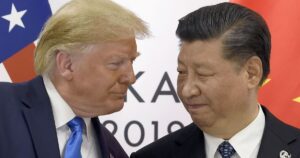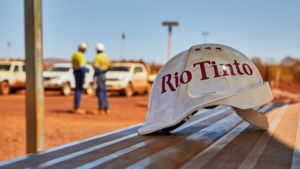
Imports of trucks to Ukraine in January-October 2025 increased by 8% in monetary terms compared to the same period in 2024, reaching $819.5 million, according to statistics from the State Customs Service.
According to the published data, the growth rate of imports of this type of vehicle has slowed down again, reaching 11.6% in the first 10 months compared to the same period in 2024.
In October, truck imports fell by 17% compared to October 2024, to $79.2 million, which is also a quarter less than in September 2025.
The largest number of trucks in 10 months was imported from Poland – $149.6 million (1.3% less than last year), France – $133.2 million (43.3% more) and the United States – $104.2 million (30.4% more).
Imports from all other countries in January-October decreased slightly, amounting to $432.6 million.
At the same time, according to statistics, Ukraine exported only $5.6 million worth of trucks in 10 months, mainly to Turkey (62.4% of exports), Romania (32.4%), and Moldova, while a year earlier, exports were even more insignificant ($2.8 million), mainly to Moldova, Poland, and Kazakhstan.
As reported, in 2024, imports of trucks to Ukraine in monetary terms increased by 30% compared to 2023, to $947.84 million, with most of them imported from Poland (almost 20%).

Chinese President Xi Jinping will not attend next week’s Group of 20 summit, dealing a blow to South Africa, which is already facing a boycott by US President Donald Trump, Bloomberg reports.
China’s Foreign Ministry announced on Thursday that Premier Li Keqiang will represent the country at the leaders’ summit, which begins in Johannesburg on November 22. The statement did not explain why Xi, who attended the event last year, will be absent this time.
Xi’s decision means that the summit, created to address geopolitical and economic issues and usually attended by heads of state, will not be attended by the leaders of the world’s two largest economies and another member country, Russia. Last week, Trump said that no American officials would attend the summit after he attacked South Africa with false claims of genocide against white Afrikaners. Russian President Vladimir Putin’s trip remains limited due to an arrest warrant issued by the International Criminal Court,” the statement said.
Other G-20 leaders, including Javier Milei of Argentina and Claudia Sheinbaum of Mexico, will also not travel to South Africa. However, several European leaders, as well as Brazilian President Luiz Inacio Lula da Silva and his Turkish counterpart Recep Tayyip Erdogan, plan to be there.
Lin Jian, spokesperson for China’s Foreign Ministry, said at a regular briefing on Thursday that the meeting in Johannesburg “has important historical significance” as it is the first G20 summit on the African continent, and expressed support for South Africa as the host country.
Li, China’s second-highest-ranking official, has represented Xi at other major international events in recent years. He stood in for the president at the G20 summit in India in 2023 and at the BRICS leaders’ meeting in Brazil in July.
South African officials say in private comments that the absence of the US may make it easier to reach agreement on the declaration, which they believe will be an indicator of the success of the country’s G20 presidency before handing over to Washington in December.

The first hundred lobbyists have registered in Ukraine’s Transparency Register, an open public platform that collects, processes, and publishes data on lobbying entities and their reports, according to a statement posted on the website of the National Agency for Corruption Prevention (NACP) on Thursday.
“As of November 13, 2025, 101 lobbying entities are registered in the Register, of which 51 are legal entities (on behalf of which 141 representatives can lobby) and 50 are individuals. Two people have terminated their status as lobbyists. So, in total, 191 lobbyists can influence decision-making in the country,” the statement said.
Among the legal entities registered in the Register, there are 27 companies (limited liability and joint-stock), 16 public associations (associations, unions), five law firms (associations, offices), and three others.
“The most popular areas of lobbying are: financial, banking, tax, and customs policy—76 lobbying entities; economic development, regulatory policy, and property—74 entities; legal policy—70 entities; law enforcement—68 entities; innovation and digital transformation – 66 entities; transport, communications, and infrastructure – 65 entities; environmental policy and natural resource use – 64 entities; agricultural and land policy – 63 entities; regional development and urban planning – 62 entities. The smallest number of entities chose the area of “Youth and Sports” – 36 lobbying entities,” the statement said.
The NACP reminds that lobbying entities must submit their first reports on their activities from the date of registration in the Register until December 31, 2025, to the Register between January 1 and January 30, 2026.
As reported, the Lobbyist Transparency Register, provided for by the law on lobbying, officially began operating in Ukraine on September 1. At the same time, the NACP put into commercial operation a key tool for its implementation – the Transparency Register.
Immediately after that, the National Association of Lobbyists (NALU) was created in Ukraine to promote investment and protect business interests. Today, it has offices in London and Zurich.
Source: https://nazk.gov.ua/uk/u-reestri-prozorosti-nazk-zareestruvalysya-pershi-100-lobistiv/

The volume of tractor imports to Ukraine in January-October 2025 amounted to $703.83 million, which is 6.6% more than in the same period of 2024 ($660.51 million), according to statistics from the State Customs Service.
According to the published statistics, tractors were mainly imported from the US (22% of total imports of this equipment, or $154 million), China (17.2% or $121.1 million), and Germany (16.4% or $115.6 million), while last year Germany was the leader ($101.5 million), China was second ($91.6 million), and the US was third ($86.9 million).
At the same time, imports from other countries in January-October decreased by 17.7% to $313.1 million.
In October this year, tractor imports to Ukraine increased by 9.1% compared to October 2024, to $73.8 million, which is also slightly higher than in September 2025.
Since the beginning of this year, as reported, tractor imports to Ukraine have shown negative dynamics: in January, they were one-third lower than in January 2024, but by the end of the first half of the year, the figures were almost equal to last year’s.
According to statistics from the State Customs Service,
this year, tractors worth $5.1 million were exported in January-October, mainly to Romania (25%), Belgium, and Germany, while last year during this period, exports amounted to $4.6 million, mainly to Moldova (25.6%), the Czech Republic, and Kazakhstan.
As reported, tractor imports to Ukraine in 2024 amounted to almost $784 million, 5.6% less than a year earlier, while exports amounted to $5.44 million compared to $5.74 million.

SALES FORUM’2025 is the main business event for sales, marketing, analytics, and export managers dedicated to systematic business growth.
This year’s theme is “The Code of Profit. Sales of New Thinking.”
The forum brings together business representatives and experts to explore how the architecture of sales is changing in a world of data and quick decisions.
The discussions will focus on behavioral economics, commercial function integration, omnichannel, leadership culture, and digital scaling models.
November 21, 2025
Kyiv, Ramada Encore, Stolychne Shosse, 103 + Online
The forum will discuss how to:
The event will bring together more than 400 business owners, CEOs, commercial directors, and sales managers who are shaping the new logic of Ukrainian business profitability.
Speakers include:
Organizer – KA Group.
General partner – MHP.
Official partners – Kormotech and Linkos Group.
SALES FORUM’2025 creates an environment for leaders who think systematically, act precisely, and build profitability as a strategy, not a coincidence.
info@kagroup.ua | +38 (063) 247 94 74

Rio Tinto Group has mothballed its $2.95 billion Jadar lithium project in Serbia, Bloomberg reported, according to the Serbian Economist.
The project will be transferred to “care and maintenance” mode in accordance with plans to simplify Rio Tinto’s asset portfolio and focus on more interesting opportunities in the short term, the document said.
A company spokesman confirmed to the agency the decision to mothball Jadar, which has large lithium-rich ore reserves.
The project, which never reached the production stage, faced many problems. The Serbian government has repeatedly changed its position on the issue of granting permits to develop the mine, which was strongly opposed by local communities.
“Given the lack of progress on the issue of permits, we can no longer maintain the previous level of expenditure and resource allocation,” the document said.
https://t.me/relocationrs/1742